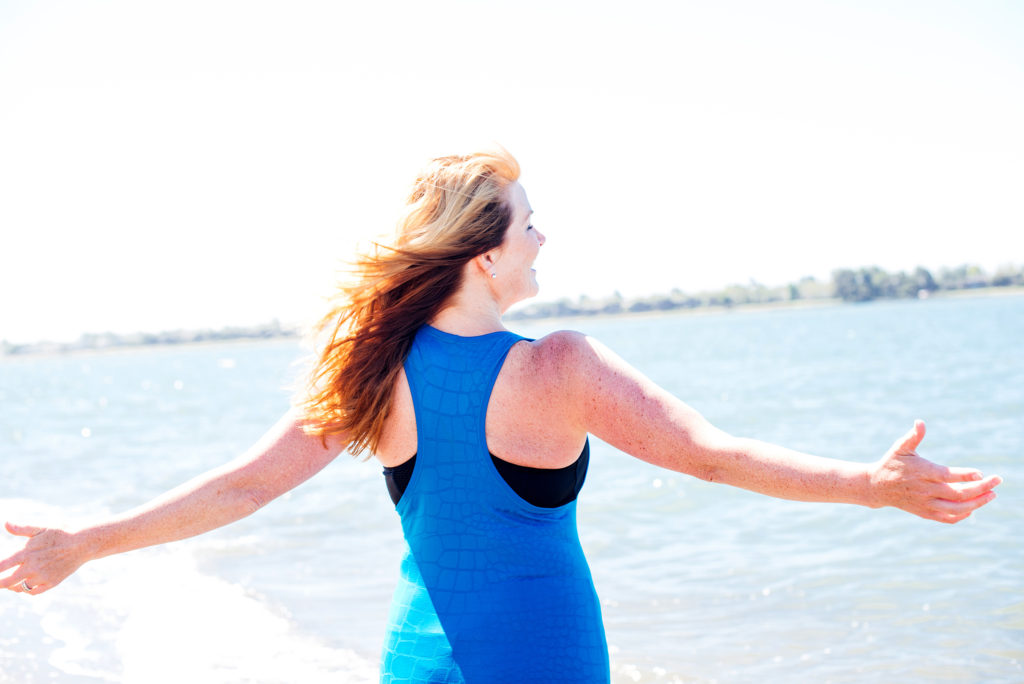For most of us, stress is a part of life that we need to deal with. Unfortunately, research shows us that too much stress can negatively affect our weight.
I personally believe that the stress component in people’s lives is often overlooked by the health and fitness industry. A client can be eating well and exercising regularly, however if the client is under continual stress it can prevent them from losing weight and in some cases even cause them to gain weight. Diet and exercise is only one piece of the puzzle when it comes to overall health and wellness.
We recently moved to a slower paced community and have simplified our lifestyle. One of the first things that changed for me was my sleeping patterns. I’ll be the first to admit that my sleep was not great before we moved. I’m happy to report that I am sleeping better and experiencing real rest. What happened after I began sleeping better was interesting.
Over the past few months I’ve noticed that all of my clothes are fitting a bit looser. I stopped weighing myself regularly years ago due to the emotional stress it can cause so I can’t tell you how much weight I have lost. However, I know for sure that I have naturally dropped a few pounds.
It’s really important for me to share that I WAS NOT trying to loose weight. I have not made any changes to my diet and I am exercising at a level that is appropriate for me while I recover from multiple injuries. My health and fitness goals are rooted in self care and happiness rather than a number on a scale, which is why I believe my recent weight loss is a result of stress reduction. Before we moved, I was eating well and exercising most days of the week. I believe that my personal experience helps support the research that if you are under constant stress, diet and exercise alone may not be enough to help you lose and/or maintain your weight.
It’s pretty safe to assume that no matter how good we are at limiting the stress in our lives we will still have to manage a certain amount of it. Here are five ways to limit stress in your life and protect your body from it:
Ditch diets for good. Research shows that constant dieting can cause cortisol levels to rise as much as 18%. When your cortisol levels rise, your blood sugar gets out of whack, first rising, then plummeting. This can make you cranky and super hungry even if you don’t need the extra calories.
Deficiencies in B vitamins, vitamin C, calcium, and magnesium are stressful to your body. Diets that suggest eliminating certain foods and/or food groups from your diet can contribute to a lack of these important nutrients. These deficiencies can lead to increased cortisol levels and food cravings. Start the day off strong with a breakfast that includes stress reducing nutrition. Foods like oranges, grapefruits, or a large handful of strawberries supply vitamin C and 6 to 8 ounces of yogurt contains calcium and magnesium. Make sure to include carbs like a whole grain bagel or toast and healthy fats like peanut butter. Whole grains are loaded with B vitamins, while peanut butter has fatty acids that can lower stress hormones in your body.
Instead of dieting, try eating as many whole foods as possible. Eating whole foods can help contribute to better energy which is part of self care. Do your best to make sure to choose foods you enjoy and avoid being too rigid about everything you eat.
Get enough sleep. Substantial medical evidence is telling us that a lack of sleep affects hormones which are linked to an increase in appetite. Your body becomes less satisfied and you are tempted to eat more food than you may actually need.
Sleep deprivation can also affect your hormones in such a way that your metabolism will literally slow down. I believe that is what happened in my case, and why I lost weight when I started to get more sleep.
The National Sleep Foundation recommends 7 to 9 hours of sleep per night. A few nights of solid sleep can bring your body back into balance, and getting enough regular sleep helps keep it there.
Limiting stress in our lives is extremely personal and looks different for each individual. We are all on our own personal journey. What’s important to remember is that health and wellness is about self care and enjoying life. Not a specific number on a scale.



